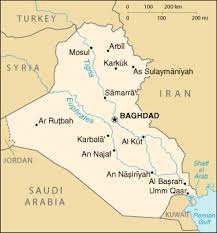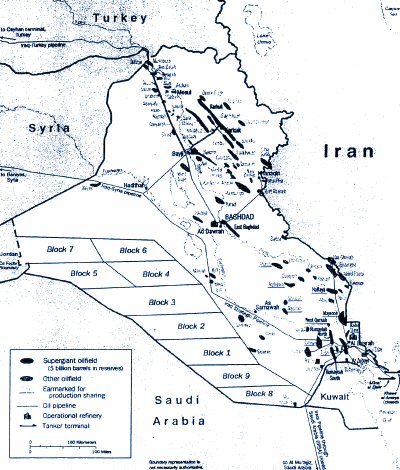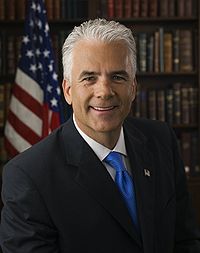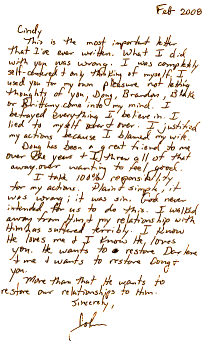 Viet Nam 1964:
Viet Nam 1964: The
Tonkin Gulf Resolution [officially, the Southeast Asia Resolution, Public Law 88-408] was a joint resolution of the United States Congress passed on
August 7, 1964 in response to two alleged minor naval skirmishes off the coast of North Vietnam between U.S. destroyers and Vietnamese torpedo ships from the North, known collectively as the
Gulf of Tonkin Incident. The Tonkin Gulf Resolution is of historical significance because it gave U.S. President Lyndon B. Johnson authorization, without a formal declaration of war by Congress, for the use of military force in Southeast Asia.

The result was the Viet Nam War directed by
Secretary of Defense Robert McNamara in which the United States lost over
58,000 soldiers. The
Gulf of Tonkin Incident used to pass the resolution that justified this undeclared war
never happened. In McNamara’s 1995 memoir,
In Retrospect, he somewhat apologized for his role in that war, claiming that he was skeptical all along, but pressed the war out of loyalty to President Johnson. McNamara died on Monday.
 Iraq 2002:
Iraq 2002: According to documents provided by former Treasury Secretary Paul O’Neill, George W. Bush instructed his aides to look for a way to overthrow the Iraqi regime ten days after taking office in January 2001. A secret memo entitled "Plan for post-Saddam Iraq" was discussed in January and February 2001, and a Pentagon document dated March 5, 2001, and entitled "Foreign Suitors for Iraqi Oilfield contracts", included a map of potential areas for exploration… With the support of large bipartisan majorities, the US Congress passed the
Joint Resolution to Authorize the Use of United States Armed Forces Against Iraq on October 11, 2002, providing the Bush Administration with the legal basis for the U.S. invasion under
US law.

The Second Iraq War was directed by
Secretary of Defense Donald Rumsfeld and has resulted in the deaths of over
4000 American soldiers. As we now know,
the reasons cited for this war [Iraqi ties with Terrorists, Iraq’s Weapons of Mass Destruction] were false [and known to be false before the invasion].
The death of Robert McNamara reminds us of the Viet Nam War, what a costly mistake it was, and how little we learned from it. As absurd as the War in Southeast Asia actually was with its trumped up Cassus Belli, the motive was at least some version of our public foreign policy – containment of Global Communism, known in those days as the "
Domino Theory."

Right now, we are embroiled in some of the details of our misguided actions in the Iraq War [torture, domestic spying, the pre-war intelligence]. But somewhere in the fog of our Economic and Social Crises, we are going to have to come to grips with the actual motives for our Invasion of Iraq. We have been told by our government that our motives were
National Defense and something called
The War on Terror – meaning our War with al Qaeda. Included in there is a notion that it has to do with a power struggle with Iran over their developing nuclear weapons. However, there is good evidence that there was another powerful underlying motive – our dwindling oil reserves. Shortly after the Inauguration of the Bush Administration, Vice President Cheney convened an
Energy Task Force. While he succeeded in keeping most of the proceedings of that Conference secret [by going to the Supreme Court], some of the documents from those meetings are in the public domain via the
Freedom of Information Act.
These are documents turned over by the Commerce Department, under a March 5, 2002 court order as a result of Judicial Watch’s Freedom of Information Act [FOIA] lawsuit concerning the activities of the
Cheney Energy Task Force. The documents contain a map of Iraqi oilfields, pipelines, refineries and terminals, as well as 2 charts detailing Iraqi oil and gas projects, and “Foreign Suitors for Iraqi Oilfield Contracts.” The documents are dated March 2001.
Click here to view the press release.

We already know from every corner that the stated reasons for invading Iraq were fictional. How do we know they were after oil? Well, there’s
Cheney’s Speech at the
London Petroleum Institute in 1999 while CEO of Halliburton:
Governments and the national oil companies are obviously controlling about ninety per cent of the assets. Oil remains fundamentally a government business. While many regions of the world offer great oil opportunities, the Middle East with two thirds of the world‘s oil and the lowest cost, is still where the prize ultimately lies, even though companies are anxious lor greater access there, progress continues to be slow. It is true that technology, privatisation and the opening up of a number of countries have created many new opportunities in areas around the world for various oil companies, but looking back to the early 1990‘s, expectations were that significant amounts ol the world‘s new resources would come from such areas as the former Soviet Union and from China. Of course that didn‘t turn out quite as expected. Instead it turned out to be deep water successes that yielded the bonanza of the 1990‘s.
Even more incriminating was
Cheney’s Speech at the
Cato Institute in 1998. In that speech he made several telling arguments. First, he conflated "business interests" with foreign policy:
I think it is a false dichotomy to be told that we have to choose between "commercial" interests and other interests that the United States might have in a particular country or region around the world. Oftentimes the absolute best way to advance human rights and the cause of freedom or the development of democratic institutions is through the active involvement of American businesses. Investment and trade can oftentimes do more to open up a society and to create opportunity for a society’s citizens than reams of diplomatic cables from our State Department.
Then he turns to his frustration with sanctions:
I want to spend a few minutes this afternoon on my favorite hobbyhorse, the question of unilateral economic sanctions… The problem in part stems from the view by my former colleagues on Capitol Hill that sanctions are the low-cost option. It is the cheap, easy thing to do. You don’t have to appropriate any taxpayer’s money. You don’t send any young Americans into combat. We’re able to take a firm, aggressive action and do something about the outrageous behavior of the offending government, and, many members believe, it does not cost a thing. But that’s a shaky premise, at best. Even though that is the view you will hear bandied about in the cloakroom, it is a false notion that has serious consequences, in part because our sanctions policy oftentimes generates unanticipated consequences. It puts us in a position where a part of our government is pursuing objectives that are at odds with other objectives that the United States has with respect to a particular region.
And he goes on to give examples of how sanctions block our access to oil in the Middle East. But the Cheney Energy Conference attended by a sea of Oil Company Executives mentioned above is the most direct evidence of the primacy of the oil motive.
The Viet Nam War was a huge and costly mistake. In pursuing our stated policy of containing Communism [specifically, containing the U.S.S.R. and China], we stepped in the middle of a Civil War, aligned with the losing, more corrupt, side using a false Cassus Belli. In Iraq, we also had a fictional cause for war, but our motive worked against our foreign policy interests. In Viet Nam, we looked stupid. In Iraq, we looked [and were] corrupt. If anything, we strengthened our adversary, Iran, by eliminating their main "rival" in the Middle East [Iraq], and inflammed the already hostile Moslem world by our direct aggression with obvious conquest, colonialization, and exploitation in mind. In Viet Nam, we committed "manslaughter." In Iraq, it was first-degree murder ["depraved heart" in legal circles].
And that’s why we can’t all follow Obama’s injunction to "look forward" – to put it behind us. It’s fine for Obama to look forward. It’s his job. But the reason for the rest of us to pursue getting Cheney’s interview in the C.I.A. Leak case is much bigger than simply catching him in his lies in that case. It’s to undermine his absurd assertion of "Executive Privilege" about his private dealings. It was that argument that swayed the Supreme Court in the case involving his Energy Conference. And the proceedings of that conference ultimately have to be released. Cheney actually succeeded in using the American War machine to pursue "commercial" interests. He might have thought that was a swell idea, just like the British thought their colonial empire was a good plan or the Romans thought that conquering everyone else was in their best interests. But that’s what we revolted against a long time ago. So McNamara was misguided in Viet Nam. But Cheney’s Iraq Invasion was perverse.
This Cheney-ism is the biggest rationalization of them all and cannot go unchallenged:
Oftentimes the absolute best way to advance human rights and the cause of freedom or the development of democratic institutions is through the active involvement of American businesses. Investment and trade can oftentimes do more to open up a society and to create opportunity for a society’s citizens than reams of diplomatic cables from our State Department.
He changed the meaning of our country…
 Now, about Senator John Ensign‘s Pentecostal International Church of the Foursquare Gospel. The Church was founded by Sister Aimee [Aimee Semple McPherson] in the 1920’s. In case you’ve forgotten, Sister Aimee was a pioneer of what we call televangelism – though then, I guess it was radio-vangelism. You guessed it, she was a pioneer in the fight against teaching the theories of evolution in the schools. Yes, after a time as an itinerant revivalist in her "God Car," she founded an early version of the "mega-church" in L.A. In many ways, Aimee Semple McPhereson was the template for the modern religious charlatans that still plague us today – pious, moral, using production techniques from the entertainment industry, political. But there’s another connection:
Now, about Senator John Ensign‘s Pentecostal International Church of the Foursquare Gospel. The Church was founded by Sister Aimee [Aimee Semple McPherson] in the 1920’s. In case you’ve forgotten, Sister Aimee was a pioneer of what we call televangelism – though then, I guess it was radio-vangelism. You guessed it, she was a pioneer in the fight against teaching the theories of evolution in the schools. Yes, after a time as an itinerant revivalist in her "God Car," she founded an early version of the "mega-church" in L.A. In many ways, Aimee Semple McPhereson was the template for the modern religious charlatans that still plague us today – pious, moral, using production techniques from the entertainment industry, political. But there’s another connection:On May 18, 1926, McPherson went to Ocean Park Beach, north of Venice Beach, with her secretary, to go swimming. Soon after arrival, McPherson disappeared. It was generally assumed at the time that she had drowned.

 Here in North Georgia, the Pentacostal Churches predominate. Mostly they stay out of politics. They form strong communities, do their baptizing and have their services – live their lives by the morality they preach. Some carry things a bit far [handling poisonous snakes, left], but they stick pretty much to themselves. It’s the ones that get into the money and power things that seem to go careening off into space. We’ve had a pretty bad run of christian craziness this last decade. I want to thank John Ensign and Mark Sanford for doing their part to get it back in the churches where it belongs, and out of our government.
Here in North Georgia, the Pentacostal Churches predominate. Mostly they stay out of politics. They form strong communities, do their baptizing and have their services – live their lives by the morality they preach. Some carry things a bit far [handling poisonous snakes, left], but they stick pretty much to themselves. It’s the ones that get into the money and power things that seem to go careening off into space. We’ve had a pretty bad run of christian craziness this last decade. I want to thank John Ensign and Mark Sanford for doing their part to get it back in the churches where it belongs, and out of our government.

 In the scope of things, the antics of Alaska Governor Sarah Palin, South Carolina Governor Mark Sanford, and Nevada Senator John Ensign may seem like side shows that detract from the important things on our plate left in such disarray from eight years of Republican incompetence. But from another perspective, they are examples of what happens when we elect people that tag along with some ideology and get themselves elected. John Ensign seems to be such a person. He was elected to the Senate in 2000 as a strong Religious Right candidate [he is a member of the
In the scope of things, the antics of Alaska Governor Sarah Palin, South Carolina Governor Mark Sanford, and Nevada Senator John Ensign may seem like side shows that detract from the important things on our plate left in such disarray from eight years of Republican incompetence. But from another perspective, they are examples of what happens when we elect people that tag along with some ideology and get themselves elected. John Ensign seems to be such a person. He was elected to the Senate in 2000 as a strong Religious Right candidate [he is a member of the  This is a strange story. Cindy and Doug Hampton were close friends with John and Darlene Ensign. After a burglary at the Hamptons, they moved in with the Ensigns. That’s where the affair started. It was quickly discovered, but it continued. Now the story gets strange. Doug Hampton and Darlene Ensign are calling around trying to get someone to put a stop to it. The story is told as if Cindy was a passive character in the story. Finally, Hampton gets the group at the C Street Christian Fellowship to intervene. In the Meeting, Ensign agrees to end things – writing a letter to Darlene and maybe agreeing to some kind of financial settlement. Apparently, shortly after the meeting, Ensign called Cindy telling her to ignore the letter – he’d been blindsided by the meeting, and the affair continued until August.
This is a strange story. Cindy and Doug Hampton were close friends with John and Darlene Ensign. After a burglary at the Hamptons, they moved in with the Ensigns. That’s where the affair started. It was quickly discovered, but it continued. Now the story gets strange. Doug Hampton and Darlene Ensign are calling around trying to get someone to put a stop to it. The story is told as if Cindy was a passive character in the story. Finally, Hampton gets the group at the C Street Christian Fellowship to intervene. In the Meeting, Ensign agrees to end things – writing a letter to Darlene and maybe agreeing to some kind of financial settlement. Apparently, shortly after the meeting, Ensign called Cindy telling her to ignore the letter – he’d been blindsided by the meeting, and the affair continued until August.

 The result was the Viet Nam War directed by Secretary of Defense Robert McNamara in which the United States lost over 58,000 soldiers. The
The result was the Viet Nam War directed by Secretary of Defense Robert McNamara in which the United States lost over 58,000 soldiers. The  Iraq 2002:
Iraq 2002: The Second Iraq War was directed by Secretary of Defense Donald Rumsfeld and has resulted in the deaths of over 4000 American soldiers. As we now know, the reasons cited for this war [Iraqi ties with Terrorists, Iraq’s Weapons of Mass Destruction] were false [and known to be false before the invasion].
The Second Iraq War was directed by Secretary of Defense Donald Rumsfeld and has resulted in the deaths of over 4000 American soldiers. As we now know, the reasons cited for this war [Iraqi ties with Terrorists, Iraq’s Weapons of Mass Destruction] were false [and known to be false before the invasion].


 Back in September, in my first ever post about Sarah Palin [whom I’d never heard of before], I was trying to be cute and called her the "
Back in September, in my first ever post about Sarah Palin [whom I’d never heard of before], I was trying to be cute and called her the "
